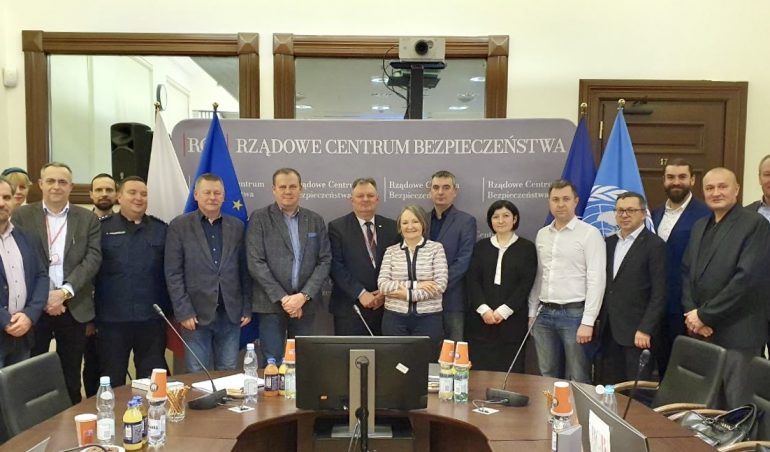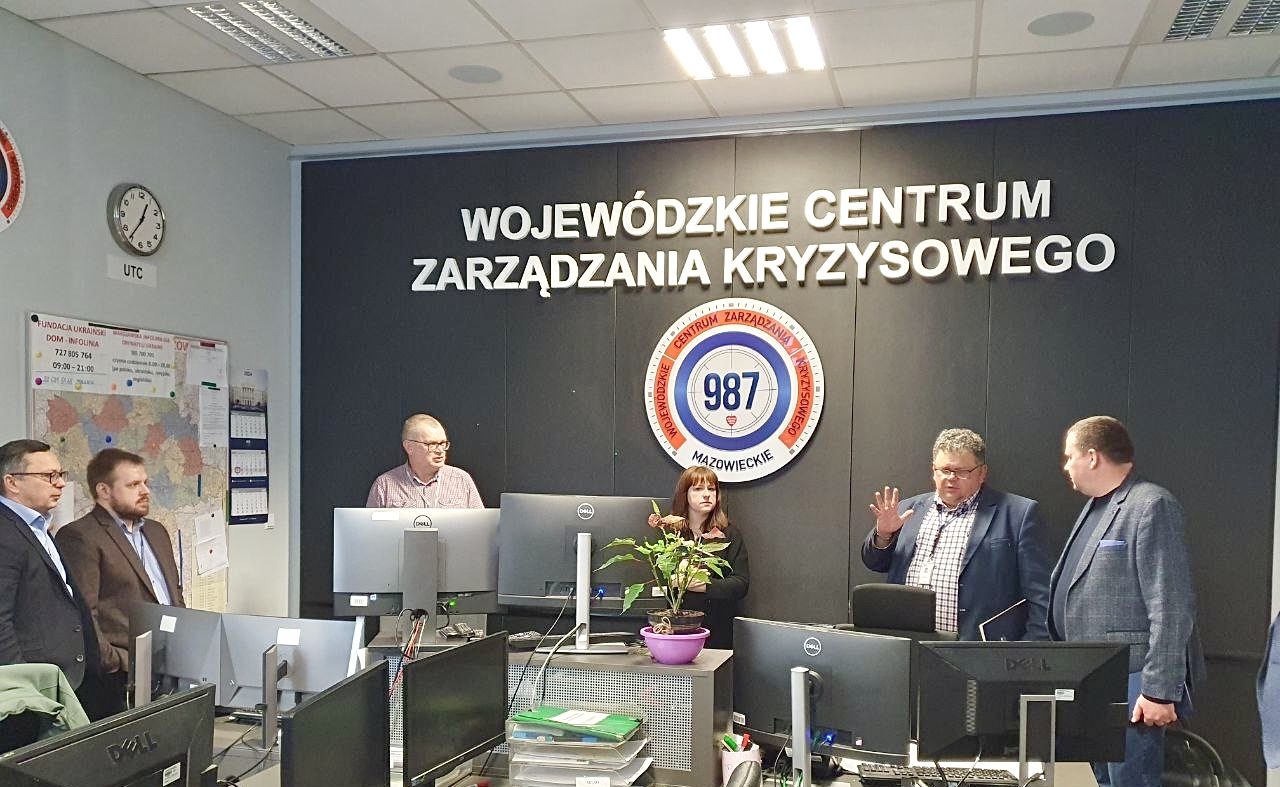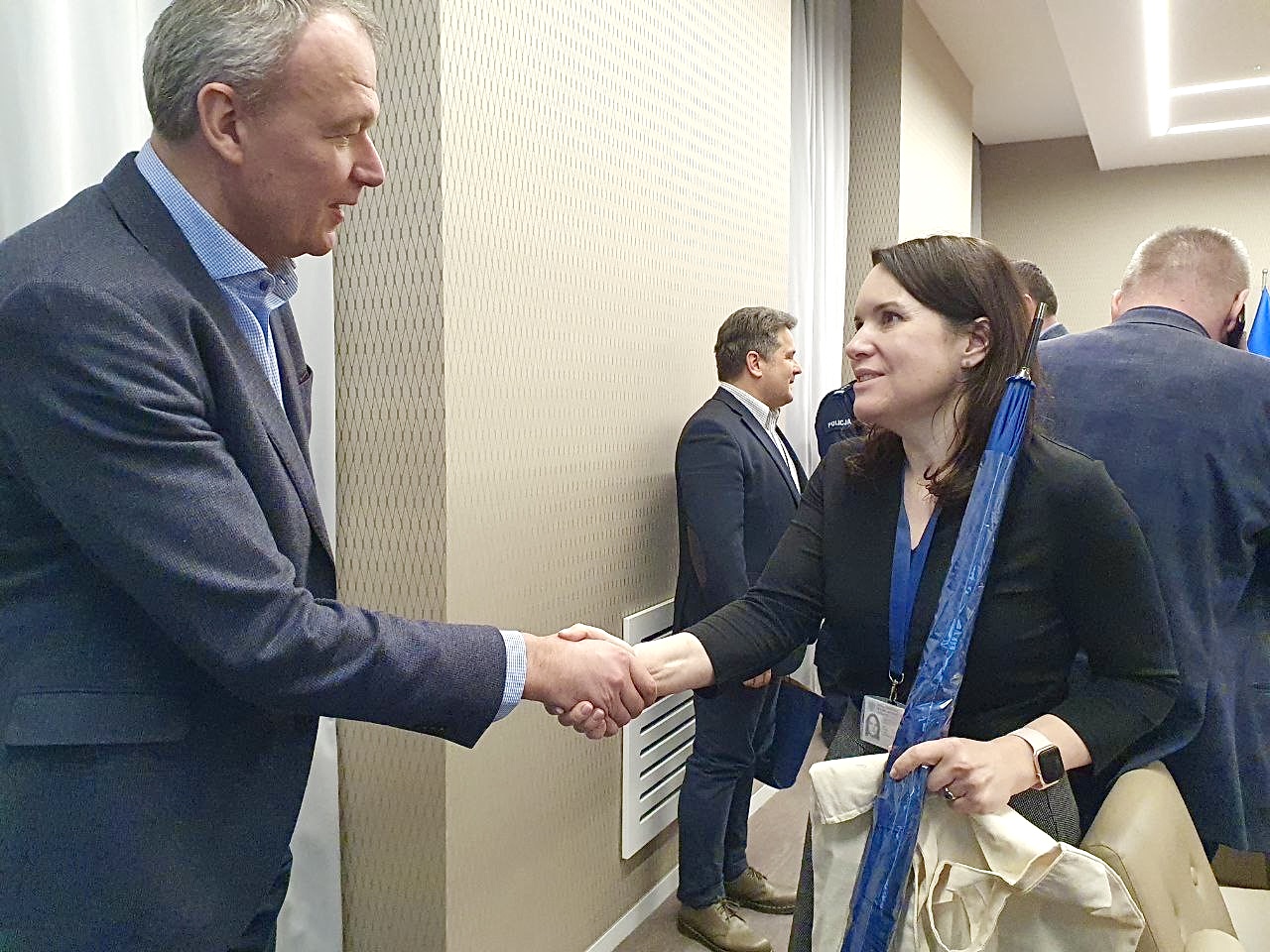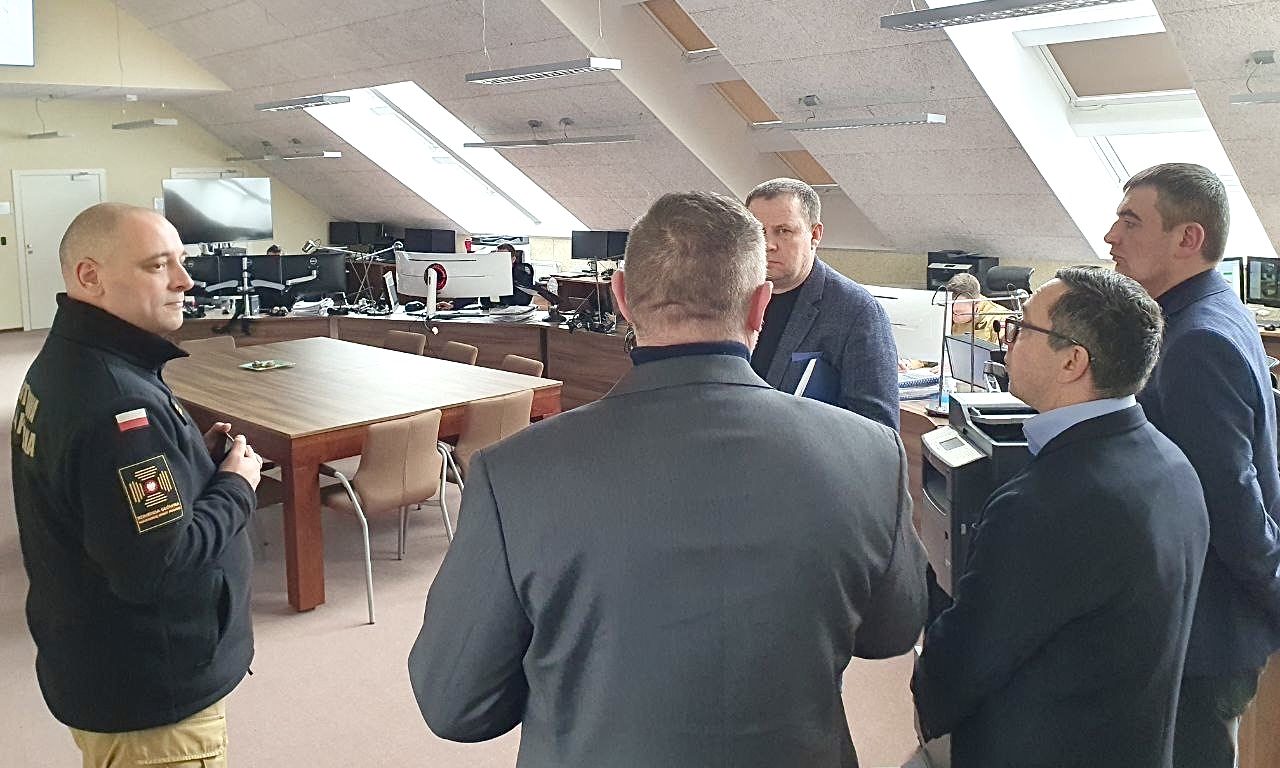Crisis Management and Emergency Response: Insights from Poland and Lithuania
March 01, 2024
Last week, the European Union Advisory Mission (EUAM) Ukraine facilitated a visit for the Ministry of Internal Affairs (MoIA) of Ukraine to learn from the experiences of Polish and Lithuanian institutions in crisis management and emergency response. The primary goal was to expose MoIA staff to the operational nuances and development strategies of Situation/Crisis and 112 call centres in these EU member states.
“Through this study visit to Poland and Lithuania, we aimed to provide the MoIA’s staff with a hands-on understanding of developing crisis and emergency response centres in line with the best practices from the EU. This initiative is crucial as it enhances the functionalities of the newly established Situation Centre and 112 Call Centre. Sharing EU expertise is essential in ensuring these entities evolve to meet the needs effectively,” says Vygantas Ivanauskas, EUAM Senior Adviser on Communications and Information Systems.

During their visit, the MoIA representatives explored the functioning of the 112 Service in Poland and Lithuania. They received detailed briefings on the inception, development stages, and challenges faced by these institutions, covering legal, technical, and organisational aspects. Discussions also included operator work standards, emergency situation classifications, call processing algorithms, and performance assessment through Key Performance Indicators (KPIs).
The delegation showed particular interest in the requirements for electronic card registration within the 112 system and how emergency details are communicated to response services. The handling of complex situations requiring multiple emergency services and the mechanisms for feedback and interaction between these services and the 112 Service were also key discussion points.

Additionally, the visit offered the MoIA team an opportunity to discuss EU standards for the identification and systematisation of security threats with Polish and Lithuanian authorities. This included learning about threat analysis, strategic forecasting, and the structure and responsibilities of Situation Centres in civil security sector at the National, Regional and Local levels. The team participated in a mass evacuation exercise, gaining practical insights into emergency management across different administrative levels.
The visit concluded with positive feedback from participants, highlighting the importance of sharing experiences across countries to develop effective emergency assistance. “This visit allowed us to learn from the experiences of both Poland and Lithuania, compare their approaches, and identify what could be beneficial for Ukraine. We are keen to incorporate the effective practices of the 112 emergency number system from both countries into Ukraine’s framework,” shared Svitlana, a participant of the visit.

The knowledge and insights gained during this visit are expected to contribute significantly to the development of Ukraine’s SitCen and 112 Call Centre, aligning them closer with European standards and practices in crisis management and emergency response.


